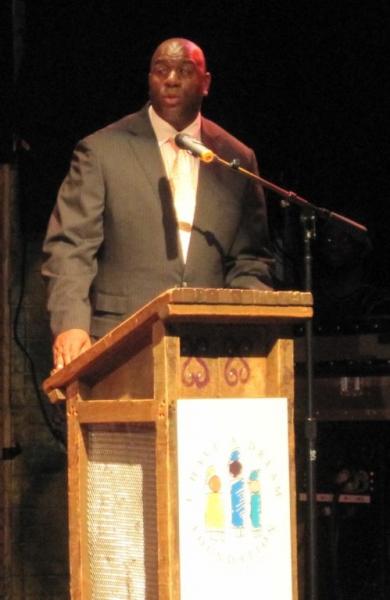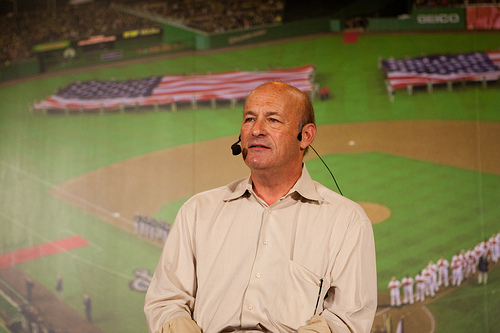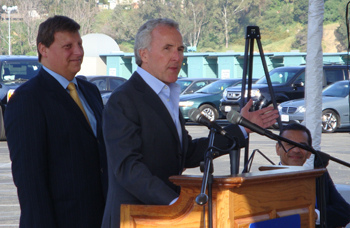The Dodgers' Changing Of The Guard

Now, the chatter across the viral media is the excitement of having arguably the greatest point guard in NBA history now as the face of the Dodgers. “Magic has a special bond with this city...maybe more than anyone,” said Jeffrey Fellenzer, a professor of sports media and business at USC. As well as he has done in life, Johnson did not come up with $2.15 billion price by himself. In addition to the presence of Johnson, let’s delve deeper into why this sale is almost a slam dunk for a franchise that hasn’t won a World Series since 1988.
First off, there is the incredible amount paid for the team, with the largest contributor and majority owner being Mark Walter, the CEO of investment firm Guggenheim Capital. The sum is the largest amount of money ever paid for a sports franchise, topping the approximate $1.5 billion paid in 2005 for English soccer club Manchester United and clobbering the $845 million paid in 2009 for the Cubs as the highest cost for a baseball team.
One can play the numbers game all day, but the sheer investment by the group means something more important: the focus is on winning. Not division titles, but championship rings. Not only will the money pay off the Dodgers’ around $600 million in debt, but it shows that this ownership group will be heavily pursuing top-level free agents in the near future and will be open to paying premiums to keep star players already on the roster, such as the possibility of giving right fielder Andre Ethier an extension. Additionally, there will be an even bigger focus to build and keep players from within the Dodgers’ farm system as well as turn a larger focus on signing Latin American ballplayers.
While $2 billion seems like a steep price, and a sharp increase from the projected sale price of $1 to $1.4 billion, the new group would not have made the purchase without knowing that there is a profit to be turned. McCourt’s $3-billion TV deal last year with FOX was blocked by MLB. Now that ownership is in more stable hands, a deal similar to the 20-year, $3 billion signed by the Lakers should be in place. Annenberg Professor and director of the Annenberg Institute of Sports, Media, and Society Daniel Durbin thinks the TV deal will not only make the franchise wealthy, but turn the Dodgers into a self-sufficient brand.
"The future of sports ownership is owning your own media networks, and I believe the Dodgers are going to take this approach,” Durbin says. The money from this deal will improve facilities and most importantly, be the reason why the Dodgers’ will no longer have to miss out on bidding for top free agents because of their despondent financial situation.
Frugality is not going to be the name of the game. Dodgers fans had to watch a juggernaut being assembled this past winter 40 miles south in Anaheim with the signings of Albert Pujols and C.J. Wilson. Now, it is the Dodgers’ turn. It is too early to know the exact approach Stan Kasten, who will be in control of baseball operations as the day-to-day executive, will take. Yet, it is fair to assume he will not be worrying about paying his players on time, as McCourt did, and will do what it takes to make the Dodgers contenders.

"He’s passionate, tough, but fair," added Fellenzer. "He’s the perfect person for the position."
Additionally, there should not be conflict between Kasten and Dodgers general manager Ned Colletti, with Colletti saying, "He's seen a lot and he's won a lot," when remarking on Kasten after the two had dinner in spring training.
While Johnson will not be in control of baseball decisions, what he will be heavily involved in is recreating the Dodgers’ public image and coming off as a beacon of success and optimism to fans everywhere. McCourt overshadowed the team with his never-ending divorce drama, reputation for, as Durbin put it, “suing the pants off of anyone he could," and his overall disconnect with the fans that paid to park in his lot and watch his team.
Magic, meanwhile, IS Los Angeles. He led the Showtime Lakers to five championships, has been the biggest public figure in the campaign to prevent AIDS, and was team vice president of the Lakers at one point. There is no doubt the other two potential buying groups would have been trustworthy and smart owners. But Magic has a certain idol factor. "He has attached himself now to this franchise and gives them instant credibility. You can’t put a price on that," said Fellenzer.
There is one unfortunate caveat of the new deal in place. While McCourt is gone from the Dodgers organization, he is still involved in Chavez Ravine. A group headed by McCourt has bought $150 million worth, or half, of the parking lots and land surrounding Dodger Stadium. There is a hitch, luckily. McCourt has only a 50% share in the parking lots, and therefore does not have power to make any decisions about the property without making an agreement with the new ownership group. Besides taking his share of the parking lot revenue, McCourt will not have any influence on the Dodgers franchise.

The sun is rising on a new chapter in the Dodgers’ fabled history. "This as good a scenario as almost any Dodger fan could have hoped for," said Fellenzer.
In a few years, the Dodgers will be worrying about losing out in bidding wars for top free agents and whether to take a risk on drafting a prospect with a costly expected signing bonus. Considering the past couple of years, these will not be bad problems to have at all.
Reach Jacob by email or follow him on Twitter.



